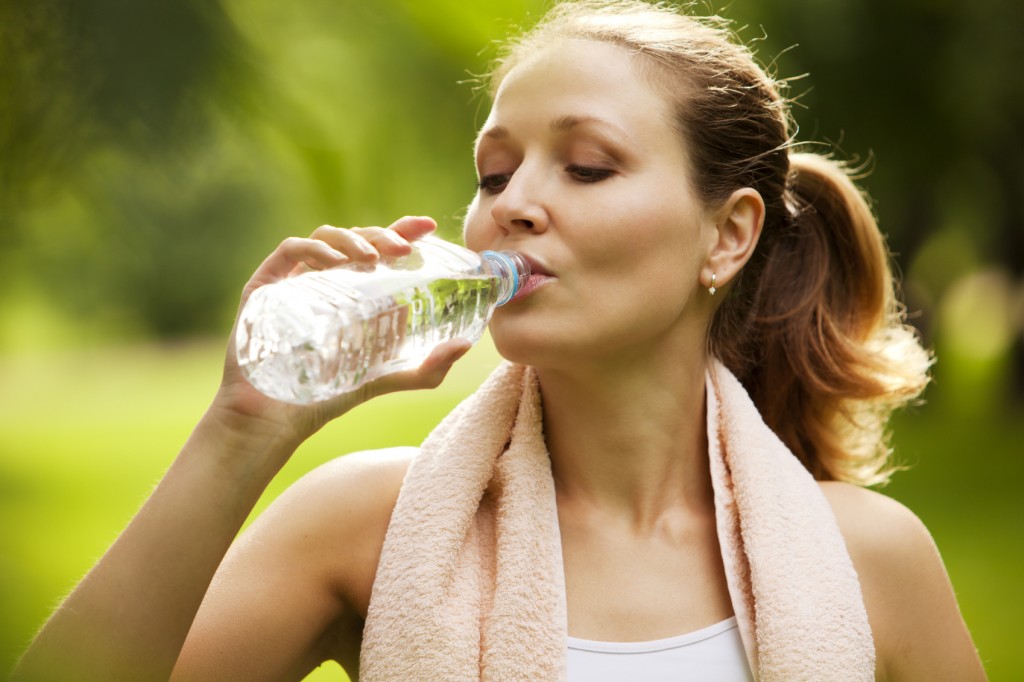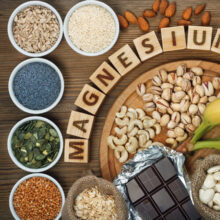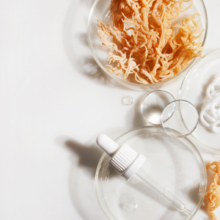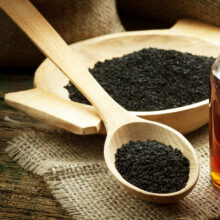Drink More Water: Hydration Tips
- Published: Wednesday, July 9th 2014
- in Nutrition

Water is essential for life. Although we can live weeks without food, we can only survive one or two days without water. Food we have the capacity to store, however, we do not have the capacity to store water, and therefore we must replenish what we lose each day. Our bodies are made up of about 70 percent water. Water has many benefits to our body, including maintaining balance of body fluids (digestion, absorption, circulation, transport nutrients, maintain body temperature), controlling calories (consuming water compared to a drink with calories helps trim undesired calories), and helping muscles and organs (muscles’ cells need adequate water supply to delay muscle fatigue, water maintains moisture in your skin, helps transport waste products, and maintains healthy bowel movement).
Getting the right amount of water makes our body work most efficiently. When we drink too little, dehydration occurs. Fluid loss is a leading cause of death among infants and elderly individuals; however, a major concern for active individuals. Our bodies need to regulate and retain a certain level of hydration to carry out the daily processes of our organs and systems. We maintain healthy fluid levels by balancing intake and excretion. Fluid losses occur through urination, sweating, our feces, and evaporation from our lungs. Dehydration causes impaired physical and mental function and could even cause death if not treated quickly. Over-hydrating is very rare, but when too much water is consumed, hypernatremia, or dilution of salt occurs, causes headaches, confusion, and can lead to seizures and coma if not retreated immediately.
We tend to drink until we are no longer thirsty, but the amount of water needed may not be enough to achieve fluid balance. This is true, for instance, when doing intense exercise in the heat. The body loses fluid quickly and because our thirst mechanism has some limitations, it is important to drink throughout the day continuously and not wait until you become thirsty. When our body tells us we are thirsty, we are already dehydrated. Keeping ourselves hydrated throughout the day will keep our fluid in balance. Our thirst mechanism becomes less sensitive over time; therefore, to reduce the risk of dehydration as we age, we need to make ourselves more aware of the amount of fluid we need and are consuming. How much is enough though?
Recommended water amount: The amount of water you need depends on your activity level and the weather conditions you are in. The more humid it is and more active you are, the more water you will need to maintain hydration. The general recommendation is eight 8-oz. glasses of water a day. However, according to Hilton Head Health Dietician Lindsay Martin, hydration needs to follow more closely to your body weight.
- 16-30 years 35-40mL/kg
- 31-54 years 30-35mL/kg
- 55-65 years 30mL/kg
- >75 years 25 mL/kg
*Fluid needs: 8-oz. glass of water equals 240 mL
In addition to body weight and age, activity level is also very important when it comes to rehydrating. During exercise:
- Avoid 1.5-2 percent body weight loss
- For every pound you lose during exercise, consume 16-24 ounces of water
- Two hours prior to exercise—1 oz. per 10 lbs body weight
- Rule of thumb: 1 gallon of water for extremely active individuals
Martin also shares that with over 60 minutes of moderate-vigorous activity, it is highly recommended to not only hydrate, but also drink or take an electrolyte-infused beverage or tablet (Gatorade, Powerade, Nuun tablets). Electrolytes help regulate fluid balance by controlling the movement of fluid in and out of cells and generate nerve and muscle impulses in response to stimuli. Electrolytes are depleted with fluid loss; therefore, it is very important to replenish your electrolyte balance along with water.
Tips to keep you hydrated:
- Have a beverage with every meal and snack; alternate between every bite of food with a drink of liquid.
- Check to see if you are hydrated: see urine color chart to the right. If your urine matches #1, #2, or #3, you are hydrated and maintain your consumption of water. If your urine matches #4, #5, or #6, you are dehydrated and need to consume more water. If your urine matches #7, you are very dehydrated and need hydration immediately. And #8, you need to speak to a healthcare provider immediately.
- Keep a bottle of water with you in your car, at your desk, and in your gym bag or purse.
- Choose beverages you enjoy and meet your calorie needs (if you need flavor, try fresh lemon, lime, mint leaves, or cucumbers).


